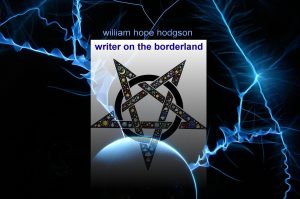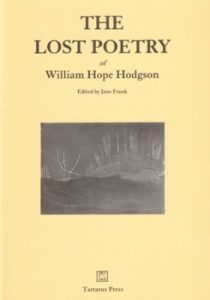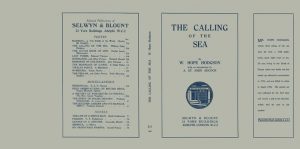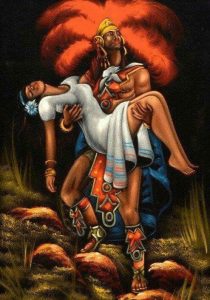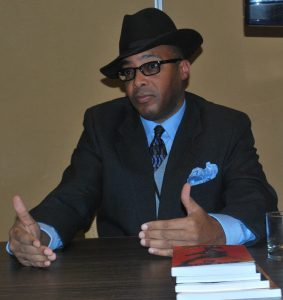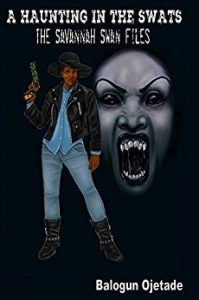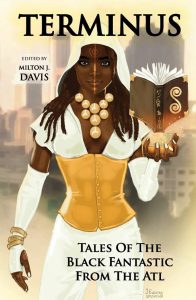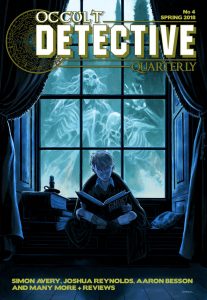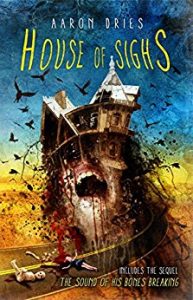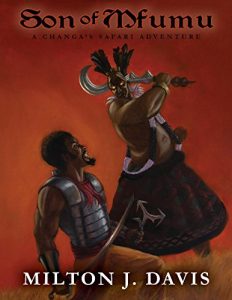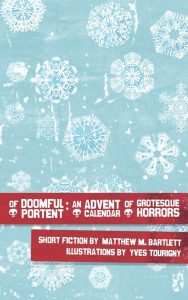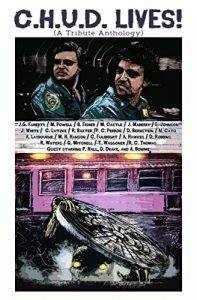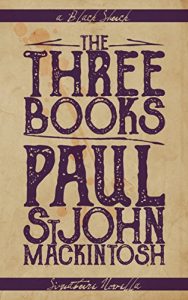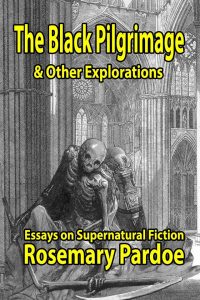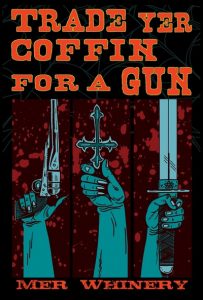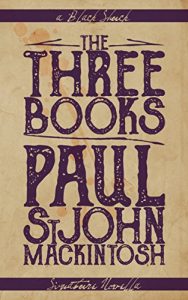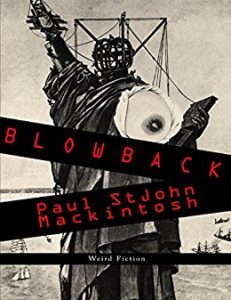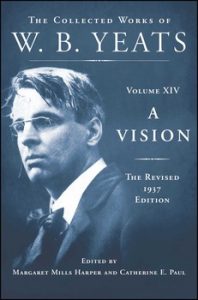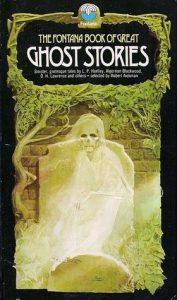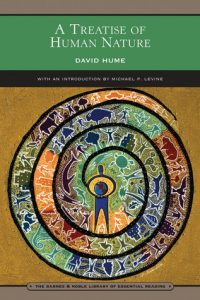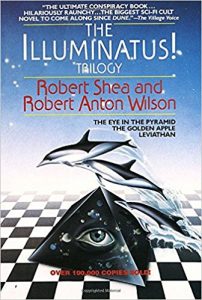Fancy a poem or ten? Don’t look at us like that – they’re jolly interesting ones, for today we consider the poetry of William Hope Hodgson, as part of our remembrance on this, the centenary year of his death. We don’t poet, ourselves, so we’re most grateful to have writer, poet and poetic scholar Frank Coffman to help us along our way. Not only does Frank offer us a commentary on, and analysis of, some of Hope Hodgson’s verse, but he has dug out more of WHH’s poems for the event (see second section below).
“The Unuttered Word”
Some Thoughts on the Poetry of William Hope Hodgson
by Frank Coffman
There are worlds of foam that I have known
And the songs of wild, young children blown
Make music in the glittering spray
In that strange world where I was grown
Where the light is not the light of day
Where the breath of life in the stounding breeze
Is at play on the foaming seas
—William Hope Hodgson
The great majority of enthusiastic readers of the work of William Hope Hodgson know him from his weird and speculative fiction. Almost all know him from his novels such as The Night Land, The House on the Borderland, The Boats of the “Glen Carrig,” and The Ghost Pirates; and collections of similarly-themed short stories in Sargasso Seas Stories and others. Some have discovered Hodgson through the few stories on his intriguing occult detective, Carnacki, the Ghost Finder. But Hodgson’s poetry has remained in general obscurity.
But in 2005, Tartarus Press did a very limited 150 copy run of The Lost Poetry of William Hope Hodgson, edited and introduced by Jane Frank that has since become more widely available in a Kindle and other editions. This book is a most welcome addition to the Hodgson corpus, and gives a fine overview of one side of the man relatively unknown prior to its publication.
As might be expected from Hodgson’s life, the theme of The Sea— with all of its mysteries, its pull upon the imagination, its contemplation-worthy immenseness, its beauties and its dangers, its place in his soul—is predominant. Jane Frank notes:
Hodgson’s long-time friend, A. St John Adcock, editor of The Bookman, wrote in his introduction to The Calling of the Sea: “in his poems, as in his prose, it is the mystery, the strength, the cruelty, the grimness and sadness of the sea that most potently appeal to him.”
But other themes like Death and the Question of Immortality, Love, Faith, Patriotism, the Pain of Loss, and the big one—The Meaning of Life—are all touched upon to various degrees. Hodgson’s overall poetic work can be seen as decidedly influenced by the later Romantics and the more Romantic of the Victorians, which should not be at all surprising. Even rebellious artists can’t help but be influenced by the cultural and artistic atmosphere of their own and the immediately previous era—if for no other reason that they ought to understand fully what they rebel against.
But Hodgson was no rebel. Frank calls his verse, “…largely of his time: mannered, grandiloquent, and oblique.” She also notes that “Sam Moskowitz blamed Hodgson’s clergyman father for Hope’s stylistic affectations, but… keep in mind the romantic, elegiac Victorian poetry Hodgson was striving to emulate, in which Biblical and archaic English forms were the norm” (“Introduction”). Some few of the poems display some maudlin sentimentality. One example of this would be “Little Garments” about a mother mourning the loss of a child, reminded that the “little garments” were the only physical things now left to her. Some few other poems do hypothetical, it seems, moanings over the loss of a loved one, death being preferable to the pain of loss and other such overdone sentiments.
As far as direct poetic influences to, Hodgson admired the works of Poe, Machen, and Blackwood, with Poe being, perhaps the (or one of the) primary poetic influences. He even parodies “The Raven” in a letter of complaint about the frequency of rejection letters to his friend, Coulson Kernahan (December 1905), he wrote:
Every morning for a fortnight have I pondered weak and weary
O’er letters still unanswered that are scattered round your floor
While I’ve pondered nearly napping, sometimes there has come a tapping
As of someone gently rapping, rapping on my outer door
Tis the Postman,’ I have muttered, ‘dropping MSS through the door—
Only that and nothing more’
Then my soul has leapt up stronger, and I’ve stayed in bed no longer;
For a glad idea has whispered that the Post is at the door,
And that all that gentle tapping which has stirred me in my napping
Is the postman dropping billet doux from C.K. on the floor
And at the thought (loud cheering) have I galloped to the door—
“REFUSALS”—nothing more.
All writers who have sought acceptance of their efforts and publication can relate to the sentiments in this parody. And, regarding, poetry, Hodgson clearly experienced the sad dearth of markets that has seemingly always been the case with work in that mode. Fiction is hard enough to publish, but the market for poetry has always been scantier. What Hodgson [and other writers clearly in love with the poetic mode, such as Robert E. Howard] experienced was that poetry is damned hard to get accepted and, beyond that—it doesn’t “pay the rent,” even if published.
Hodgson bundled many of his poems early in his career into three separate collections, presented in Lost Poems for the first time. These were: Mors Deorum [Death of the Gods] and Other Poems, Through Enchantments and other Poems on Death, and Spume. Each of these begins with a long musing monologue, the first two on Life and Death and the question of Immortality, the third—as the title suggests—mostly regarding the Sea, some in this latter collection perhaps derived from specific experiences, some seemingly based upon incidents in his journals and logs.
But most of the poetry is strong and striking in imagery, and some of it is distinctly metrically experimental. This in that Hodgson wrote very few poems in what we might call “fixed forms.” The rhyme and meter are there, but not in standard tetrameters and pentameters and often varied and randomly rhymed with some use of slant rhyme.
Most of Hodgson’s poetry seems to have been written between his retirement from the Merchant Marine in 1899 and about 1906. He was somewhat frustrated by the lack of good markets for his verse, but—as with all of his literary work—was tenacious to the point of obsession in keeping it in circulation, following each rejection immediately with a resubmission to another market.
As noted, the Sea and the effect it had on the young writer predominates. A sense of his poetic style and urge for distinctness can be seen in the opening section of “Song of the Ship”:
And I toss the blue from left to right,
And I leap the driving surge,
And the tall seas follow close behind,
And ever the moaning of the wind
Wails softly a solemn dirge
This pentastich (five-line section) is, essentially an expansion on the meter of the literary ballad from a four-line to a five line form, including an extra four-accent line in the fourth line, altering the normal 4-3-4-3 to 4-3-4-4-3 accents. The normal rhyme of ABAB or ABCB (with the even-numbered short lines always rhyming) is also changed to ABC[slant rhyme with C]B. Following this section the other two sections of the poem are 8 and 11 lines long, respectively.
Here and elsewhere, one distinctive feature of Hodgson’s verse is that it seems to flow organically and is not preconceived to be a sonnet, a ballad, or any traditional form. For him, traditional iambic metrics (with anapestic variety quite often) are kept, but often with a variety of line lengths [similar to what Matthew Arnold did in his most famous poem, “Dover Beach”]. And the poems rhyme, but often randomly, with the echoes close enough to be noticeable, but following no strict pattern. To those degrees, Hodgson’s poetry is at least formally atypical—if not distinctive.
Several poems are on Hodgson’s clear interest in Life, Death, and what, perhaps, lies beyond. The poem “Farewell,” evidently written around the time of his leaving the merchant navy in 1899—or certainly regarding that occasion—is brief enough to include in its entirety:
FAREWELL
And, now it is farewell,
Forever, O great Sea!
Yet in some distant world, my soul
Shall dream of thee.
For now, a far-off toll, I hear—
It is my knell
Rung out by solemn waves on mist-bound shores,
While overhead, the groan
Of opening, monstrous doors
Comes echoing down to me,
And streams of awful light
Shine o’er thy tumult, Sea,
As I pass up across the night
Into the great Unknown.
Here again we have Hodgson’s personally common (but for his period and the precedent traditions uncommon) “mix” of meter and rhyme. Essentially iambic, the line lengths ramble with various feet: 3-3-4-2-4-2-5-3-3-3-3-3-4-3. Thus, in effect, the poem is a most unusual sonnet with the required 14 lines, but with highly irregular and brief line lengths (except in the pentameter of line 7). My guess is that became a sonnet “accidentally” and, again, organically driven rather than being preconceived, but we can’t be sure.
The rhyme scheme [using a lower case letter to indicate a “slant” or “near” rhyme] is: ABaBCADEDBFBFE. This is most irregular, but it displays Hodgson’s organicism of poetic creation. The poem “evolves” and rolls on like the varied waves and moods of the sea. The distance of six lines between the E rhymes almost loses the echoing effect, and the lack of any echo for C is also unusual. The third line slant rhyme of “soul,” partly echoing “farewell,” is actually “picked up” in a full cross rhyme into line five with “toll.” The musical effects are there. The poet is not eschewing rhyme and meter, but he is using them in a distinctive way.
Hodgson was also interested in the theme of artistic inspiration itself. This can be seen in the poem aptly entitled, “Inspiration”:
INSPIRATION
Thou pursuest thy lonely way
‘Midst tortuous paths of brooding thought
Lit by no gleam of earthly day
Till, in a while, thy soul has caught,
Despite of flutterings to escape,
A formless thing of light —unwrought;
A misty, glowing spirit-flake,
Waiting thy fire, thy forge, to make
It into some great glorious shape.
All in all, a fine brief lyric, containing the loneliness, the “brooding thought,” the capture by the “soul” of that “fluttering” and fleeting thing, always threatening to “escape” —the essence of inspiration, the “thing of light” as yet “unwrought”—the spark that through the poet’s soul of “fire” and the “forge” of mind and imagination might, just might, become a “great and glorious” thing.
Perhaps the most poignant theme to be found in Hodgson is the same as that expressed by Keats in his famous sonnet, “When I Have Fears”: that of the artist who is aware of his own genius and fears that the potential creative work that might yet be—will never be done:
When I have fears that I may cease to be
Before my pen has glean’d my teeming brain,
Before high-piled books, in charactery,
Hold like rich garners the full ripen’d grain;
When I behold, upon the night’s starr’d face,
Huge cloudy symbols of a high romance,
And think that I may never live to trace
Their shadows, with the magic hand of chance;…
We see this also in Hemingway, in his masterful short story, “The Snows of Kilimanjaro.” The character of Harry, dying of gangrene, thinks:
Now he would never write the things that he had saved to write until he knew enough to write them well. Well, he would not have to fail at trying to write them either. Maybe you could never write them, and that was why you put them off and delayed the starting. Well he would never know, now.
And in Hodgson’s important poem, “The Death Cry of Young Genius,” sub-titled, [In understanding of G’s feelings, as he lay dying, speechless; his message undelivered—his personality unexpressed. WHH] we find the same somber theme in its opening:
I am here for a little time;
I came from the great Unknown;
Life leaps from birth to death,
And then I am alone
In some unremembered clime,
Wondering—Without breath.
I am here, and when I go
I would leave some mark behind,
But I must haste, or I am lost
And wandering outward, blind,
Forgetting, ere scarce I know,
The gain of life for the cost.…
(emphases added)
And in its conclusion:
But overtopping much
Agony’s drearest goal
Is the agony now hurled.
Genius smothered unheard,
Ere the soul-tale is expressed,
Is the greatest terror the world hath known,
A double terror unguessed,
For with such dies the unuttered Word –
The genius dies not alone.
(emphases added)
Alas, William Hope Hodgson was not allowed to finish the tale of his soul; the amazing and wondrous works of both prose and poetry that might have been must remain forever unheard. And that dreaded thing—“the unuttered word”—must always be the plight of us all. But we know today that Hodgson’s genius was not truly “smothered.” No author or poet or artist in any art has ever succeeded in “[gleaning their] teeming brain.” There is not world enough or time. What we have in the compilation of the work of this young genius, including his little-known poetic output must suffice. And most believe it does.
Frank Coffman is a published poet, story writer and college professor
TEN POEMS
A Selection of Poems by William Hope Hodgson
Selected and edited by Frank Coffman
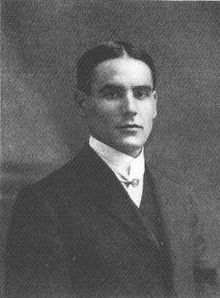
THE NIGHT WIND
O, thou sad wind, drear and inscrutable,
I hear thy speech among dark mountain crests –
(Above their faces, calm and immutable,)
Sinking at whiles to rests
Like the slumbering creep of foam on quiet sands,
Or sleeping of mists and rain o’er silent lands,
Rising anon to speech which seems to sound
Out of the throat of some undreamt-of Pain –
Rising and rising, till the whole world round
Gives back an echo of thy mournful strain,
Till the mysterious deeps that lurk in space
Receive the sound in their engulphant maws;
And further off, where through tremendous doors
God peers, strangely it passes o’er
His face, Meaning of worlds in pain.
INSPIRATION
Thou pursuest thy lonely way
‘Midst tortuous paths of brooding thought
Lit by no gleam of earthly day
Till, in a while, thy soul has caught,
Despite of flutterings to escape,
A formless thing of light —unwrought;
A misty, glowing spirit-flake,
Waiting thy fire, thy forge, to make
It into some great glorious shape.
GONE
Thou hast gone on before me
Into the grave’s strange gloom.
Would that I could have gone with thee
To share thy tomb!
To share thy tomb, and thy waking,
If waking there be from death;
If not, it were joy forsaking
This life and the torture of breath
And the pain of my old heart breaking
And the fear of the years yet to roll
With their terror of loneliness aching
Within my hungering soul!
LOVE SONG TO THE DEAD
I stand upon the rim of death, and sing my song,
E’er I, stepping, pass along
Where the lonesome shadows throng
In the silent Underneath.
Whether I may come to thee
Who shall tell me? I go blind.
Just my life, a useless thing!
To the lone abyss I fling
Chance that, dying, I may find
Thee, who art all hope for me.
If I find thee not, then I,
Wand’ring ‘neath some awful sky,
Shall sup doom with every breath,
Past the easeful touch of death. . . .
Just a shape of agony
Craving for one sight of thee.
I stand upon the rim of death, and sing my song,
E’er I, stepping, pass along
Where the lonesome shadows throng
In the silent Underneath.
SPUME
A loud wind screams;
A sea-horse rushes past,
A form of raging water filled with gleams,
Hurling before the blast.
SONG OF THE SHIP
And I toss the blue from left to right,
And I leap the driving surge,
And the tall seas follow close behind,
And ever the moaning of the wind
Wails softly a solemn dirge
Through the lofty heights
Whence the tender lights
Of evening take their flight.
And the night comes down in gloomy waves,
And the growling thunders rise,
Till their booming echoes fill the night,
And the lightning throws its livid light
Across the murmuring skies:
Whilst mountainous steeps
And muttering deeps
Shape in the blast that raves.
And the light flies up across the waves,
And the dark gives place to dawn,
And I see the whirling clouds of spray
Break over half of the coming day
In the luridness of morn,
That lifts and flies
Far across the skies
Lighting a thousand graves.
THOU AND I
O Sea, in days Long past, thy bosom bore
My little craft upon thine endless ways,
From shore ‘cross thee, and back again to shore.
Thy solitude I shared with thee when thou
Didst sink to some great stillness, there to brood;
And loneliness lay coldly on thy brow.
Sad, solemn notes Chimed softly o’er thy breadths,
As though some secret rite in thy remotes
Wafted its harmony from slumberous depths.
And this poor shape I would commend to thee;
Treat it with tenderness—hide it, and drape
It with thy beauties submarine, O Sea.
CONQUEST
I saw the cold dawn stride across the East,
A ghostly light –a livid Shade, that stept
With quick’ning strides from the abyss of night.
Higher it strode and flashed a sword of flame,
Shearing the murky clouds of night in twain,
A riven gap that reached from sea to heaven.
And then a thousand glittering darts it flung
Of blazing rays that flamed across the void
And pierced the heart of night with quivering wounds
That bled a sombre glory o’er the wave.
Then o’er the dim sea’s edge I saw the targe
Of day—the Sun—loom grandly through the mists;
And night expired beneath the feet of day.
THY WANDERING SOUL
Thy spray-dewed soul o’er many a sea has ridden,
Borne unseen through the spume where tempests ever call;
Where seas in shuddering mountains, tortured, driven,
Heave smokily along, while over all
The deep continuous boomings and the moanings
Of some vast storm’s reverberating sound,
Fills the whole sky with screamings and with groanings
Rising above the shouting seas around.
Anon, the grim and murky night is riven
With some green serpent flaming from the vast,
With some cruel glitter lighting up the wildness,
Lighting the night-tide of that overcast;
One moment showing all that has been hidden—
Deep quaking valleys gaping ‘neath the blast,
Mad screeching fountains shooting through the darkness,
Leaping sea-horses roaming masterless.
And there, where spray, in foaming pillars forming,
Reaching the sky its canopy upholds—
Whitening towers of surge to save it falling,
Seen in the flash of some weird lightning’s glow—
There midst the din, the tumult and the storming,
Comes to thy soul the well-known, tortured cry,
Comes the wild scream of some poor sailor calling,
Calling for help beneath a lonely sky—
While through the wrack there drive up ghosts unbidden,
Even as thou art—driving through the surge,
Joining their eldritch cries to ocean’s weeping,
Joining their voices to that thunder-dirge;
Dirging for one, who sinking to his sleeping,
Sinking is gone where mystery unfolds;
Sinking, has passed until death shall awaken
From that sad sleep far in the deeps below.
FAREWELL
And, now it is farewell,
Forever, O great Sea!
Yet in some distant world, my soul
Shall dream of thee.
For now, a far-off toll, I hear—
It is my knell
Rung out by solemn waves on mist-bound shores,
While overhead, the groan
Of opening, monstrous doors
Comes echoing down to me,
And streams of awful light
Shine o’er thy tumult, Sea,
As I pass up across the night
Into the great Unknown.
Works Cited
Frank, Jane. “Introduction.” The Lost Poetry of William Hope Hodgson. Tartarus Press, 2005.
Hemingway, Ernest. “The Snows of Kilimanjaro” — pick any edition or online source.
Hodgson, William Hope. The Lost Poetry of William Hope Hodgson. Ed. Jane Frank. PS Publishing & Tartarus Press. Kindle Edition.
Keats, John. “When I Have Fears” — pick any edition or online source.
